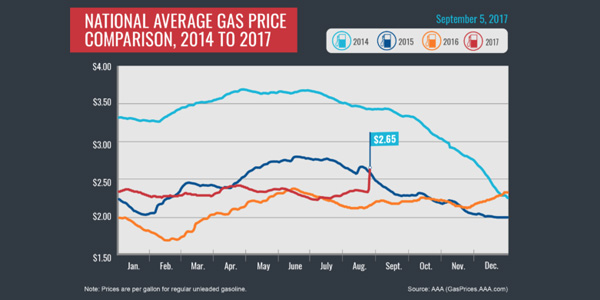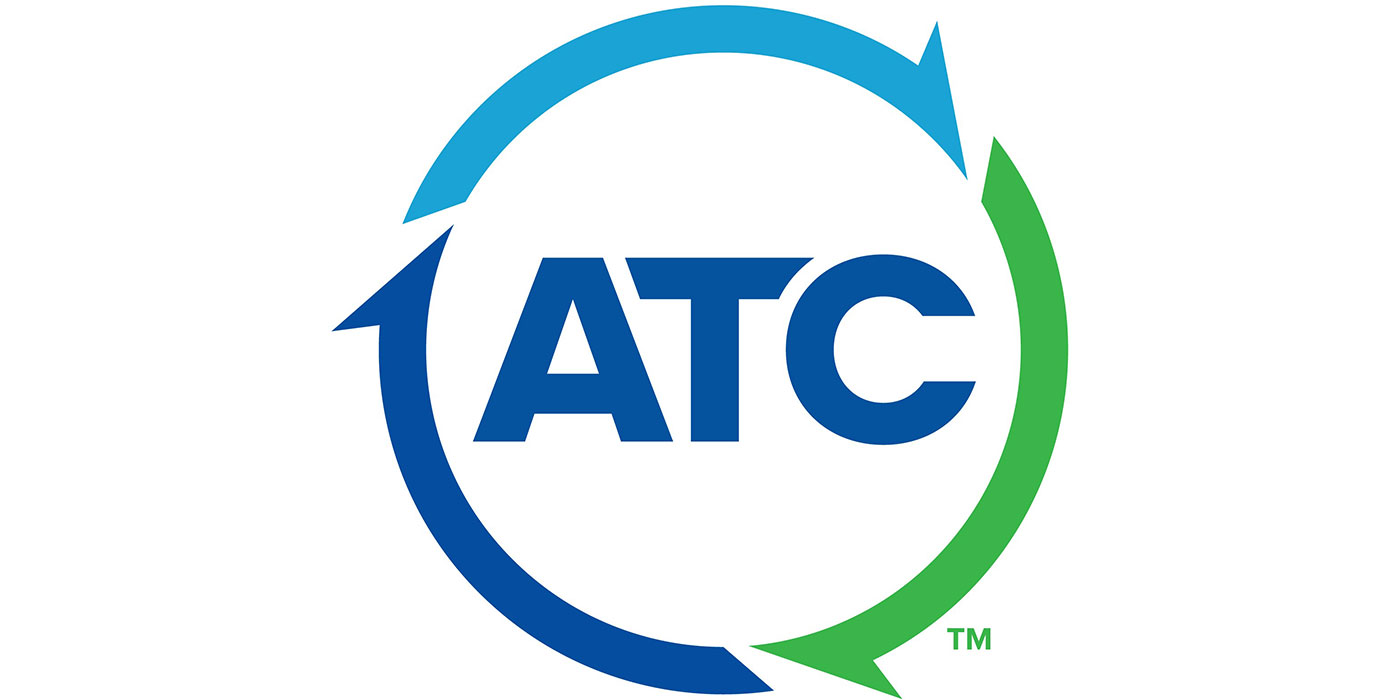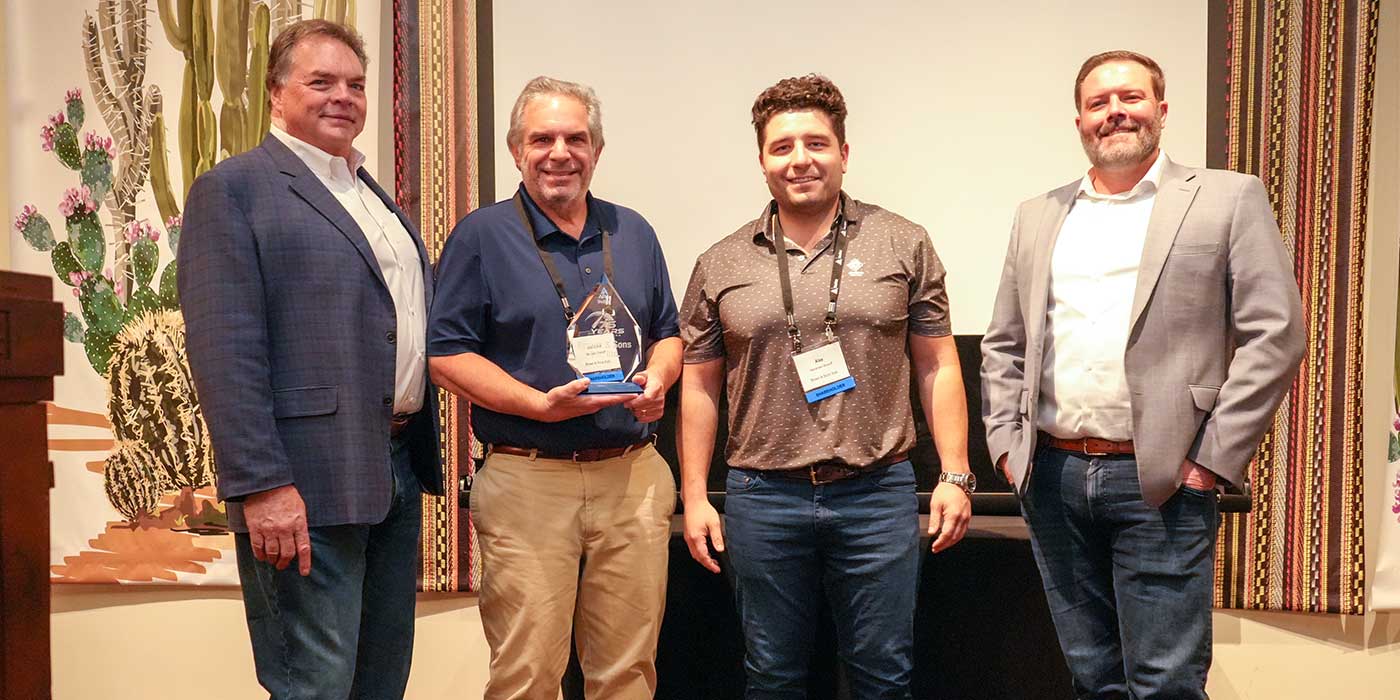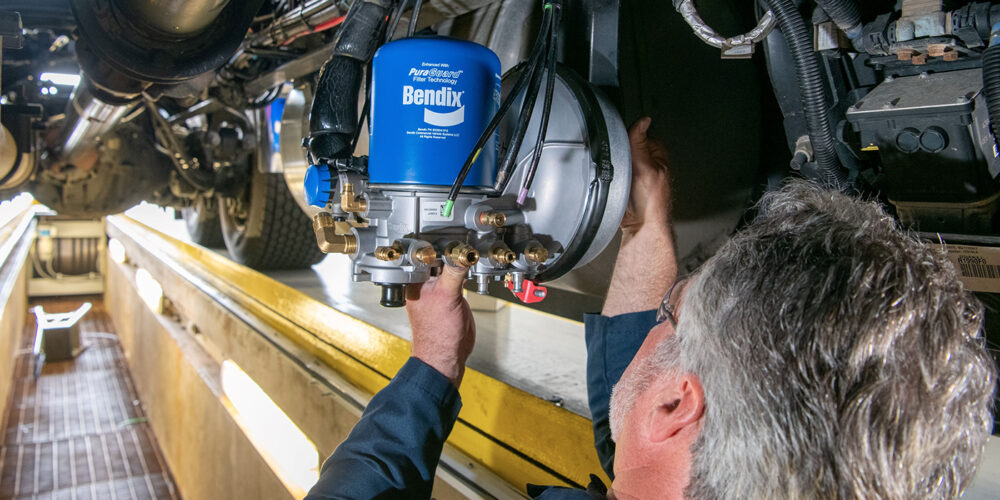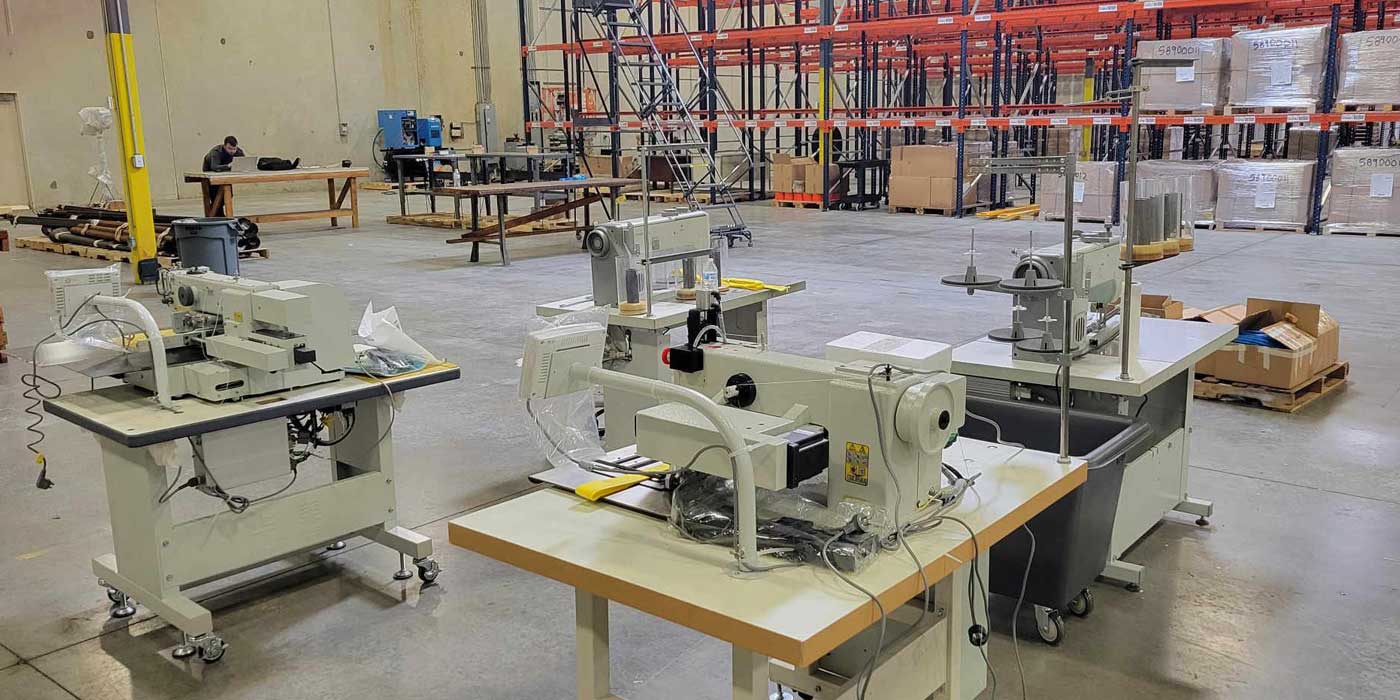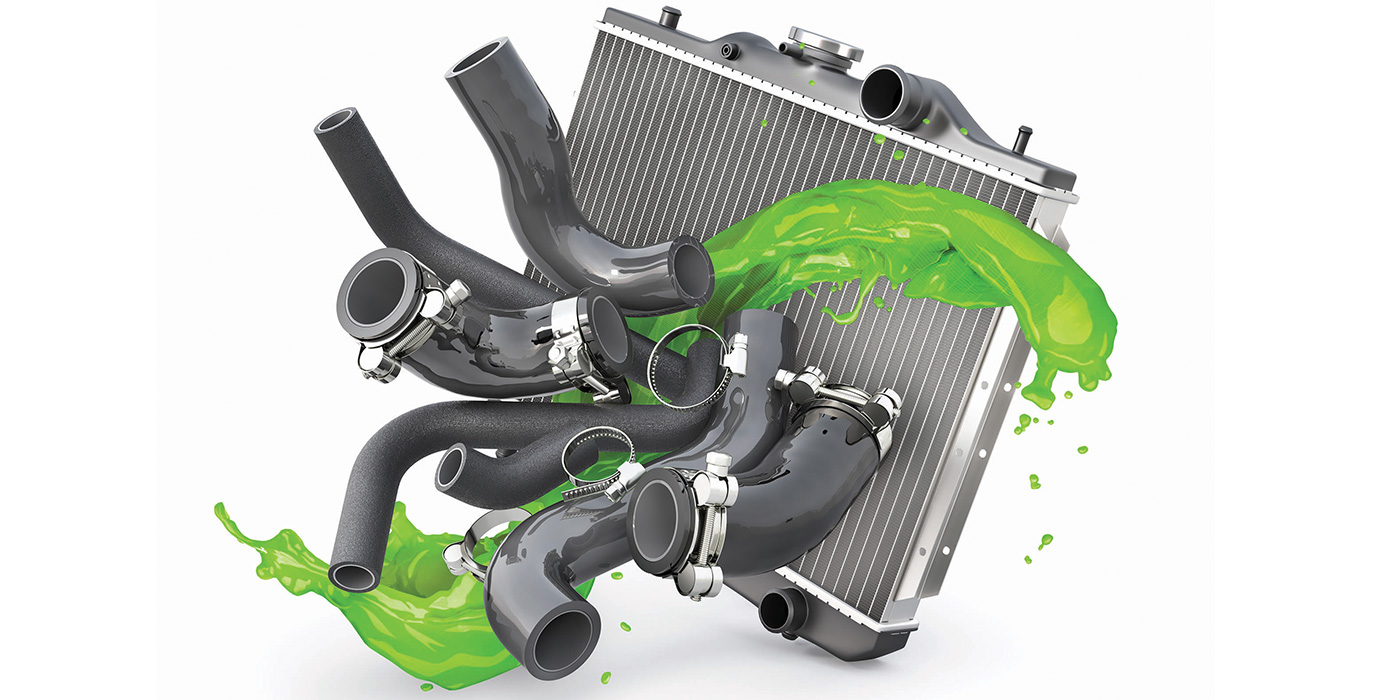Hurricane Harvey may no longer be raining down on the Gulf Coast, but the storm’s impact continues to drive up gas prices across the country. At $2.65, the national gas price average is 27 cents more expensive on the week. Motorists in 26 states are paying 25 to 44 cents more for a gallon of unleaded compared to seven days ago. In fact, every state in the country has seen gas prices increase except four (Alaska, Idaho, Hawaii and Utah), where prices remain stable. Overall, gas prices are pennies away from topping the highest price ($2.67, Aug. 15-18, 2015) Americans have paid for a gallon of gas in more than two years.
As Texas dries out from Harvey, all eyes are on Hurricane Irma, now a Category 5 hurricane, which currently is expected to hit the Leeward Islands of the Caribbean on Tuesday night into Wednesday. A Hurricane Watch is in effect for the U.S. Virgin Islands and Puerto Rico. According to the National Hurricane Center, there is an increasing chance that the Florida Peninsula and the Florida Keys may see some impact this coming weekend. However, Irma’s changing storm track could bring an altered forecast in the coming days.
“Our regional AAA teams are preparing for the impact Irma may have on our members. The safety of our response teams and members is our No. 1 priority,” said Jeanette Casselano, AAA spokesperson. “AAA will continue to monitor Irma’s path and the potential impact the hurricane could have on residents in the area, as well as the refineries, pipelines and supply distribution components.”
The Department of Energy (DOE) is reporting that eight Gulf Coast refineries are in the process of restarting, which accounts for about 10 percent of Gulf Coast refining capabilities. At its peak, Harvey shuttered 27 percent of U.S. processing capacity. No refineries have returned to normal rates, but at least four are operating at reduced rates. Meanwhile, pipelines forced to take pre-cautionary shut downs caused by Harvey either have resumed operations or are in the process of coming back online. This includes the Colonial Pipeline, which currently has only suspended the Texas operations, while the remainder of the system continues to operate with available supply.
In response to refineries and pipeline shutdowns, last week the DOE authorized the Strategic Petroleum Reserve (SPR) to negotiate and execute emergency exchange agreements authorizing 5.6 million barrels of crude oil to be released. In addition, DOE and the Environmental Protection Agency (EPA) have issued waivers to Colonial to accept more product into its pipeline.
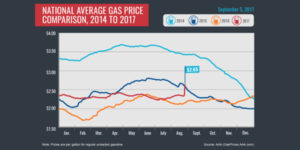 With more than 50 inches of rain, Harvey set a record for the greatest amount of single-storm rainfall for the continental U.S.
With more than 50 inches of rain, Harvey set a record for the greatest amount of single-storm rainfall for the continental U.S.
“News of refineries starting-up is very promising, especially for areas that have felt tightened supply levels over the past 10 days, but we aren’t in the clear yet,” said Casselano. “Consumers will continue to feel pain at the pump stemming from Harvey with gas prices potentially increasing an additional five to 10 cents in the week ahead. States in the south, southeast and mid-Atlantic are most likely to see the biggest surges as these states receive the bulk of their supplies from the Gulf Coast. They could even see an additional surge if Hurricane Irma hits Florida this weekend. The good news consumers will see relief from the gas price spike toward the end of this month.”
Losses in U.S. supply capability have catapulted retail prices to their highest levels since August 2015, but remain well below initial weeks of September 2011 through 2014, according to OPIS. The past two years have seen inordinately cheap gasoline as the driving season ended (Labor Day weekend) and AAA expects this to be the case come October.
Today, 74 percent of U.S. gas stations are selling gas for $2.75 or less while only seven percent are selling above $3/gallon.

